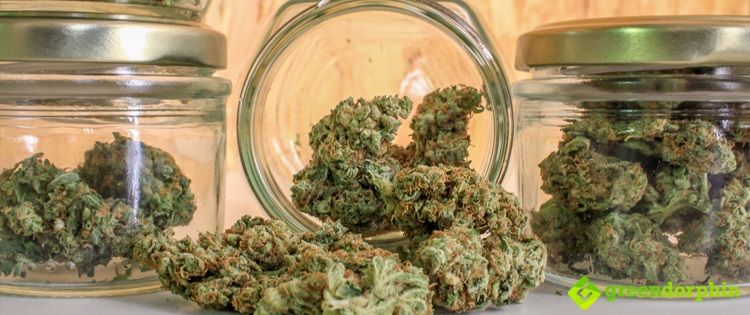Patient journeys to access cannabis are frequently long and fraught with frustration and delay. Access to the drug is still almost always difficult and on several fronts.
In Germany right now, the battle lines are absolutely drawn to the next global conversation about cannabis. This is true more so here than any other country in the world. Why? The Germans are going about integrating the drug into German healthcare. In no other place to date, with the exception of Israel and Canada, has the discussion now reached this critical point. Australia still faces all of these issues. Further, given the unique situation facing German healthcare in general, the questions cannabis raises about the same are significant, long lasting and potentially impactful on the entire discussion of not only this drug, but how governmental systems will continue to administer, regulate if not pay for all of them.
That is all very well and good in the abstract. The place this discussion is seen most clearly on a daily basis, of course, is in the lives of patients. Guenter Weiglein, like many others, is caught in a bureaucratic tangle that touches every part of his life. Unlike many others, he has decided to focus his life on doing something about it.

And further, it is precisely because he has succeeded that Weiglein is also still facing so many problems.
The reality is that when you decide to become an activist as a cannabis patient, the odds if not deck are usually (if not completely) stacked against you. And that starts with self-identifying as a cannabis patient in the first place.
Core Battles
Weiglein’s first tangle with the authorities came as he realized he needed the drug to manage chronic pain. As a result, he is also one of the many people caught in a battle which is not yet over. He also likes most people have tried as hard as he could to do things legally. Several years ago, he was one of five patients to take the government to court over the right to grow his own. His insurance company was not paying up.
That court decision also appears to have been the driver of other developments. It is the genesis of the current legislation passed in January. The court decided that in essence, sick Germans have the right to cheap if not free cannabis. Including the ability to grow it if they could not afford it any other way.

That was a good start. It also gave cause to cheer for advocates and activists on the ground here.
However, “reform” is not all its cracked up to be. And while there were many who cheered the news that medical use was finally legit here, there were others like Guenter who were left hanging.
Not only has his right to grow at home been revoked, post medical legalization, but the government is now telling him to submit medical prescriptions from a doctor to a regular pharmacist for his supply. He has no guarantee that he will be able to get his insurance company to cover it. So far, this has been a hit and miss proposition. At this point, he cannot even find a prescribing doctor.
The public insurers, who handle such requests in this market, have even been known (recently) for turning patients down for coverage when they suffer even from conditions like AIDS. This is a sign of how entrenched resistance here is and on every level at multiple places within the healthcare establishment to cannabis as medicine.
And it is patients like Weiglein, inevitably, who are always caught in the mix if are not on the front line.

Not a Familiar Story
Weiglein is of course, not alone in Germany as a patient who has refused to back down from the freedoms he has already won. He travels the country these days when not dealing with the complications of this issue in his own life, to conferences and expos around Germany. His message is very simple.
Patients these days are facing the unappetizing reality that they must grow their own supply to have a guaranteed access to the drug. Worse, they are now back to facing criminal sanction for doing so. Either that or buy it from the black market. No matter where reform is happening, the question of who pays on the medical side is far from answered.
So far, ultimately, the highest prices, and on every front, have been born by those least able to afford them – patients.
And there are many patients, including people like Weiglein, who have simply decided to fight back.

In Germany, this means different things in the United States, but sadly, there are still too many marked similarities. There is no asset forfeiture here. Federal prosecution is unknown at this point. There is no Jeff Sessions at a federal legal bureaucracy here waving the German equivalent of RICO. Patients, however, can still be severely punished. Into the gap fall those who cannot or do not fight for access in any other way than showing up at a doctor’s office. Activist patients who begin to fight their own battles, almost instantly become teachers and mentors for everyone else. They also can become targets.
A Life of Long Days
Patient activists have several battles to face immediately. The first is, of course, managing their own health. The second is maintaining their strength and focus on the external battle to be won around them. And that is a hard fight. Sometimes it feels like there are times when success comes one step at a time only to be followed by the defeat that reverses the gain made by a factor of two.

On top of this, success breeds followers. Patients like Weiglein who begin to win battles for themselves, find themselves also then besieged with desperate people who also need help. And their stories are always compelling. Weiglein is very aware that this is not just his own battle he is now fighting.
And that, beyond his own immediate needs, is what keeps him fighting.
Are you a medical cannabis patient?
Why not share your story here and together let’s spread the amazing benefits from the plant.
- Guenter Weiglein – The Persevering Patient - July 7, 2017
- Dr Peace – A German Cannabis Doctor On The Go - July 5, 2017
- The German Marijuana Edibles Market - July 3, 2017


